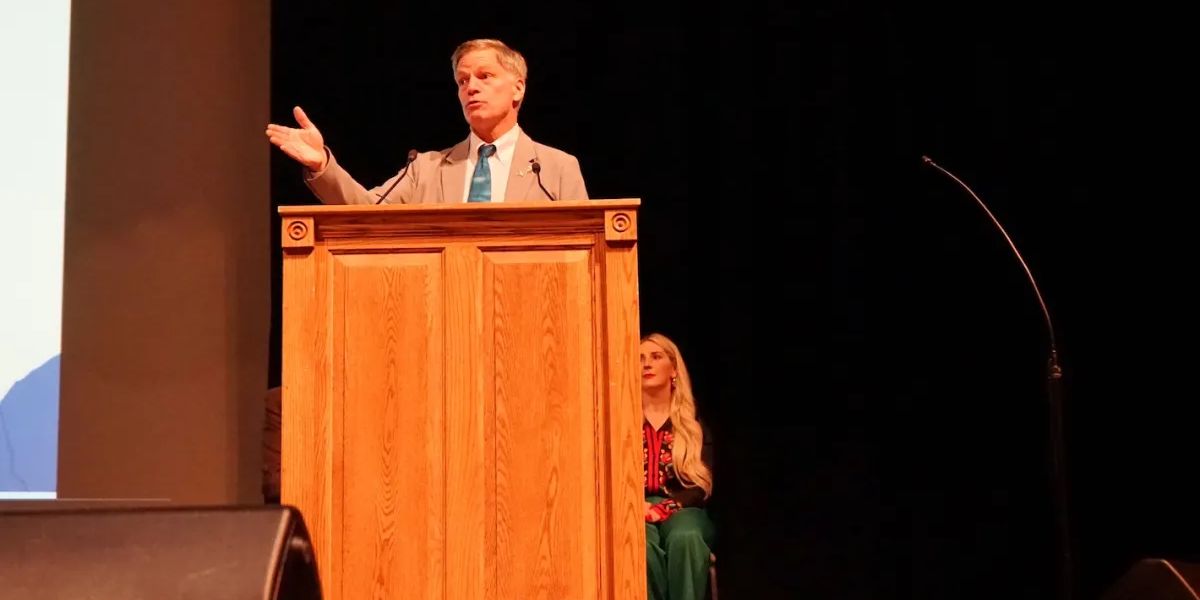Nine parents of school-aged children and the Wyoming Education Association, which represents more than 6,000 of the state’s public school employees, filed a lawsuit Friday challenging the constitutionality of the state’s education savings account program instituted by the Wyoming Legislature.
The program, which lawmakers created in 2024 and significantly expanded during their time in Cheyenne this year, will give up to $7,000 per K-12 student to Wyoming families annually to pay for private education costs.
The WEA’s complaint argues that the program violates the Wyoming Constitution in two key ways. One for directing public dollars to private enterprises, which the lawsuit says is clearly prohibited. The second for violating the constitution’s mandate that Wyoming provide “a complete and uniform system of education.”
The program puts kids at risk of falling behind while wasting tax dollars on unqualified operators, Kim Amen, president of WEA, told WyoFile in a phone interview Friday.
Proponents of the education savings accounts, also known as a voucher program, argue it gives parents more choices in educating their children and offers the smallest rural communities options to bring schools in if they don’t qualify for public school investments by the state.
The constitutional arguments in the lawsuit echo those made repeatedly by the program’s opponents during recent statehouse debates over its expansion — one of the most controversial topics of the 2025 legislative session. The debate also brought interest and action from national school choice organizations to Cheyenne.
“They were told over and over that this was unconstitutional and they chose to pass it anyway,” Amen said.
Superintendent of Public Instruction Megan Degenfelder and State Treasurer Curt Meier are named as defendants alongside the state. Meier is named because WEA is seeking a court injunction to stop the disbursement of funds by the treasurer. Degenfelder supported the program and is failing to uphold the state’s public education system, Amen contended Friday. A department of education spokesperson did not immediately respond to a voicemail seeking comment on the lawsuit late Friday afternoon.
House Education Chairman Ocean Andrew, R-Laramie, a chief proponent of the school voucher legislation, told WyoFile on Friday he did not think the lawsuit would succeed, based on similar cases in other states.
“Legal challenges like this are expected whenever bold school choice programs are implemented,” he said. “Wyoming’s ESA program was crafted carefully to withstand this kind of scrutiny, and we’re confident it will stand.”
The new lawsuit opens a second major front in legal battles between public schools and the increasingly conservative legislature, which has constrained public education funding while promoting the growth of privately run charter schools in Wyoming. The lawsuit directly challenges the Legislature’s expansion this past session of its voucher program, which provides public funds to cover private education costs.
But in Friday’s complaint, the WEA’s attorneys linked that voucher program to what they called lawmakers’ failure to fund public education to the high standards Wyoming’s constitution dictates. Educators notched a sweeping legal victory in February — during the legislative session — in a lawsuit over that case, when a district court judge ordered lawmakers to reexamine the public school funding model.
“While the ink was still drying on the District Court’s decision, the Wyoming Legislature … greatly expanded the existing Voucher Program to all students in Wyoming,” the complaint reads.
The state has appealed the school funding case to the Wyoming Supreme Court, which has not yet taken up the matter.
The WEA will continue to challenge the Legislature in court if lawmakers pass bills that the organization considers unconstitutional and detrimental to public schools, Amen said.
“The voucher school program disproportionately benefits wealthy families,” she said. “We remain committed to defending our public educators, students and families. Public dollars belong in public schools.”




